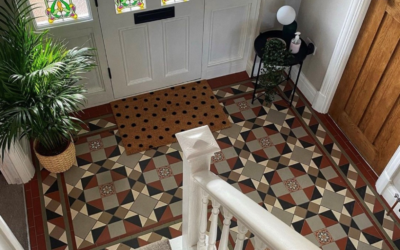It’s no secret that the world is becoming more environmentally conscious. With an increased awareness of the impact that traditional construction methods have on the environment, people are turning to more sustainable building practices. One of these methods is Insulating Concrete Formwork (ICF), a construction technique that has seen a rise in enquiries in recent years. At Early Birds Building Company, we’ve noticed an increase in interest in ICF, and in this blog post, we’re going to explore why. We’ll discuss the benefits of ICF, why it’s becoming more popular, and how it can be used to create sustainable and energy-efficient buildings. So, whether you’re a homeowner or architect, read on to find out more about this innovative construction method.
Insulating Concrete Formwork (ICF) is a construction method that involves the use of lightweight polystyrene blocks that are stacked together to form a building’s exterior walls. The blocks are filled with concrete, creating a solid, highly insulated wall that offers several advantages over traditional construction methods. In this blog post, we will explore ICF from Early Birds Building Company’s perspective, detailing its benefits and drawbacks.
ICF can be used in any structural building project, including houses, swimming pools, and cellars. The system is highly versatile, and it can be adapted to meet a range of design requirements. In addition, ICF is an excellent choice for building passive houses and eco-friendly structures. The highly insulated walls of ICF buildings can significantly reduce energy consumption and lower heating and cooling costs.
Another advantage of ICF is that it is quicker to install and it requires less labour compared to traditional construction methods. This means that construction projects can be completed more quickly and with fewer manpower costs.
However, there are a few downsides to ICF construction that should be considered. For example, future remodelling could be challenging. An often-overlooked drawback to using insulated concrete forms is that it makes it challenging for future remodelling. Extra care and detail must be put into the building’s design since you can’t add fixtures, like doors and windows, without cutting through the concrete wall. When managing construction projects under these circumstances, you should consider the various wiring and plumbing installation points to mitigate the problems cutting into the wall brings.
ICF also does not work that well in low temperatures. In colder climates, the insulation properties of the wall can be compromised if the concrete is not poured correctly or if the blocks are not properly installed. Furthermore, some projects may not be able to add rebar reinforcement, which is necessary for some load-bearing applications. Finally, ICF requires a bracing process to hold the blocks in place while the concrete is poured and cured, which can be a time-consuming process.
In conclusion, ICF is a highly versatile and energy-efficient construction method that offers several benefits over traditional construction methods. However, it is not without its drawbacks, and careful consideration should be given to the specific requirements of each construction project. As an experienced bespoke building company, Early Birds can help you determine if ICF is the right choice for your building project and provide you with expert guidance throughout the construction process.




